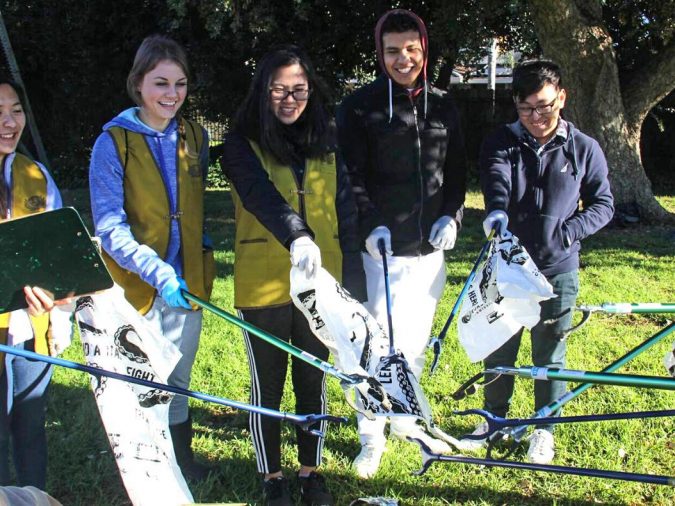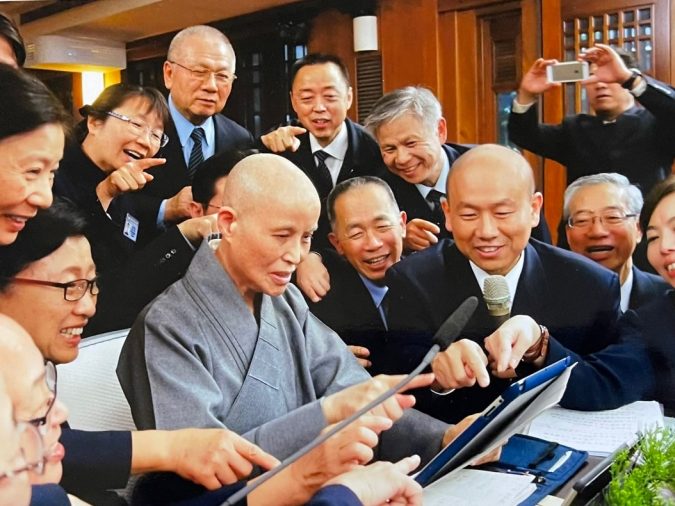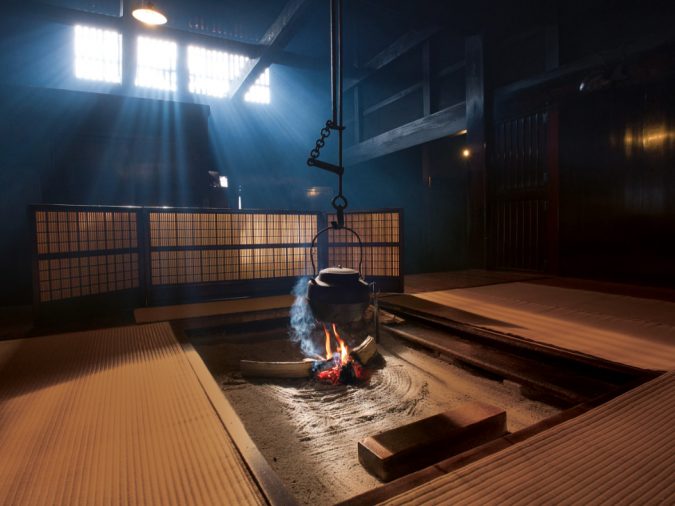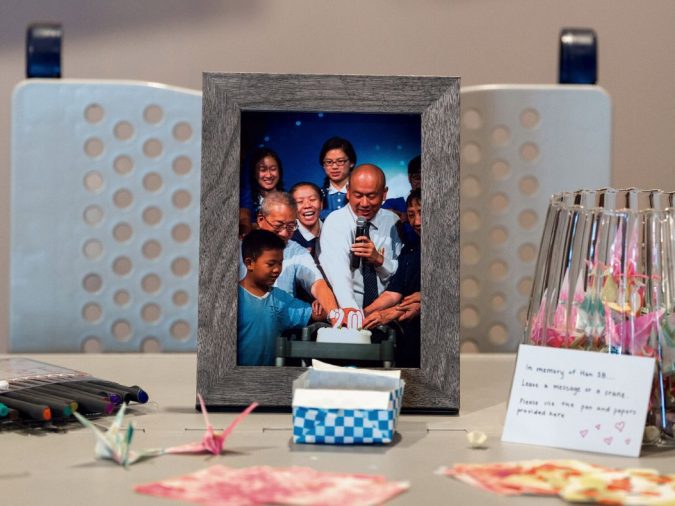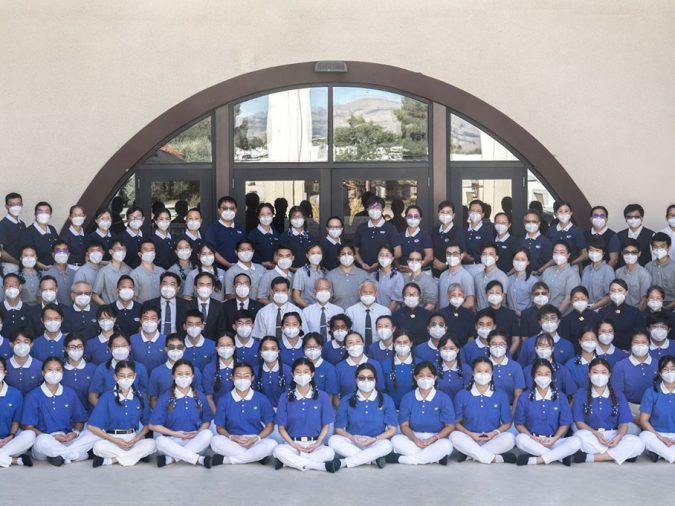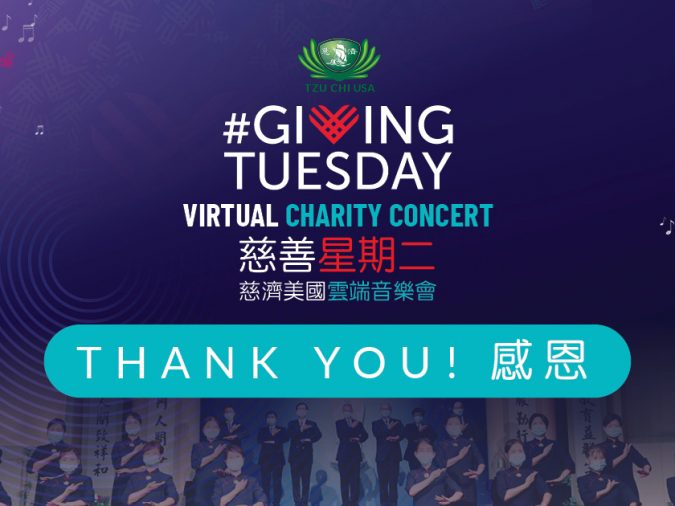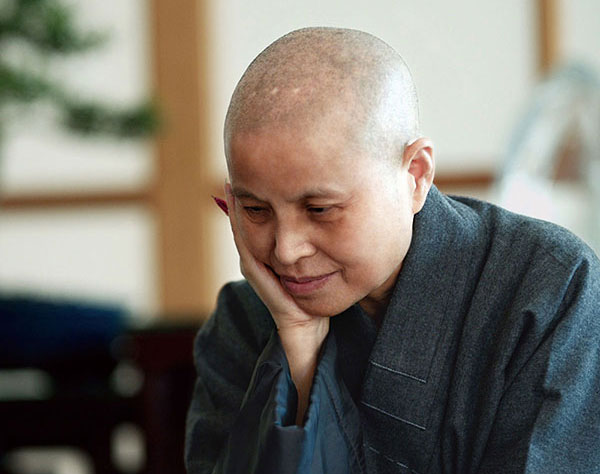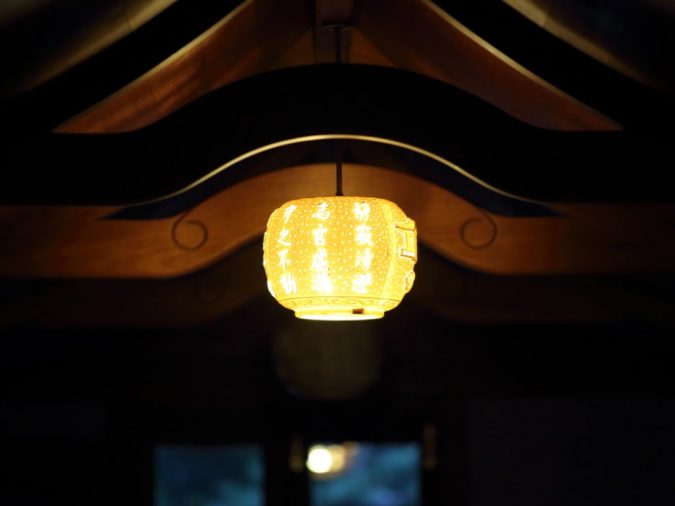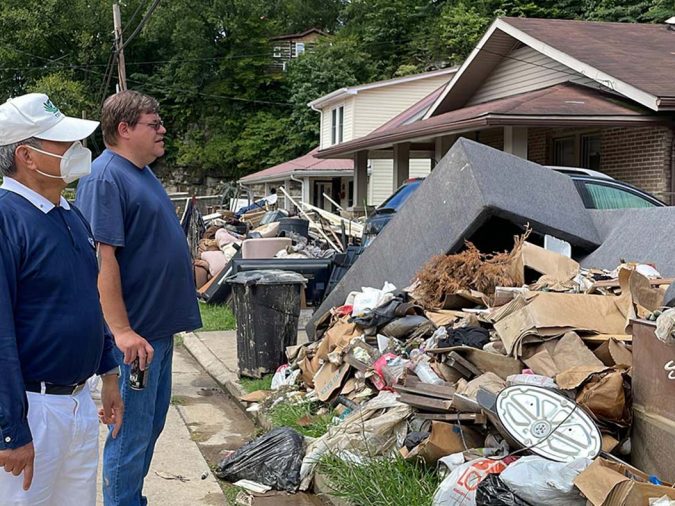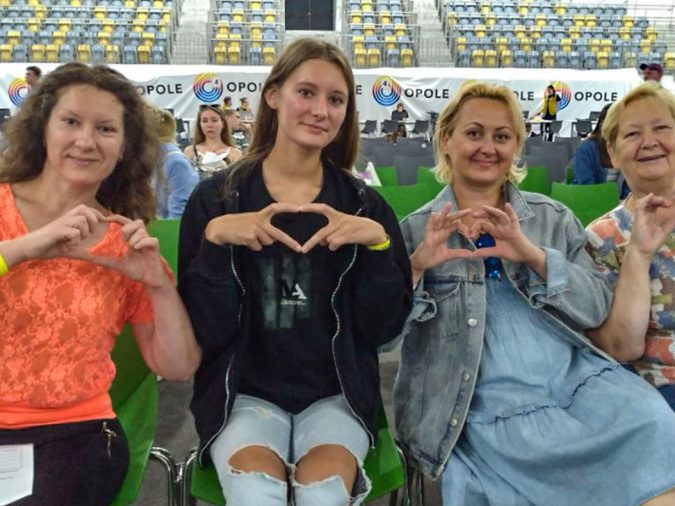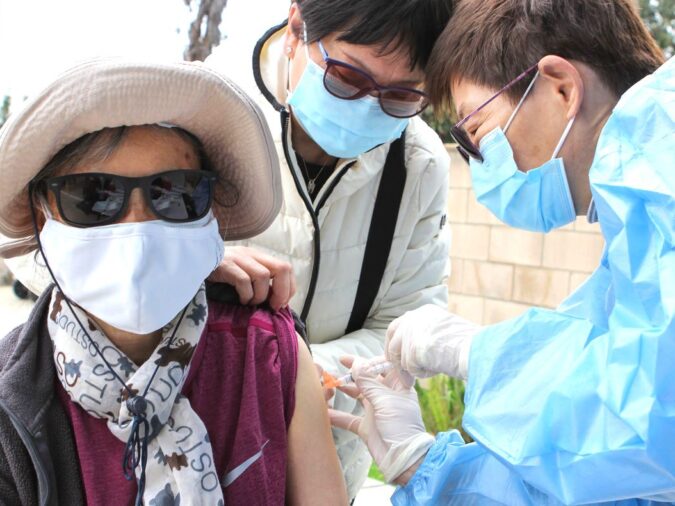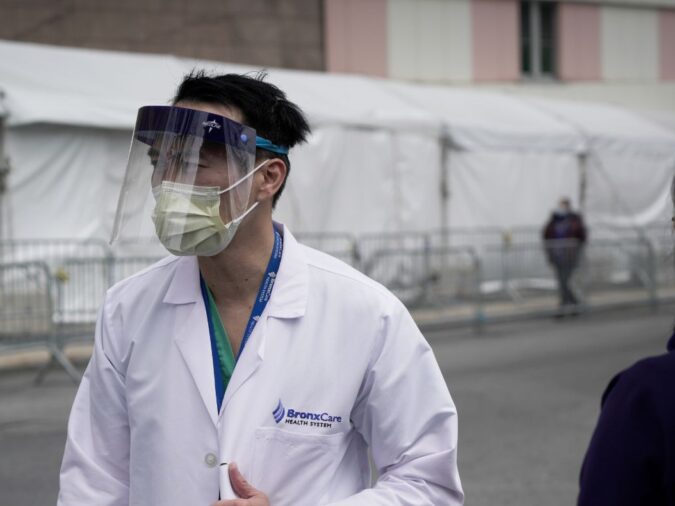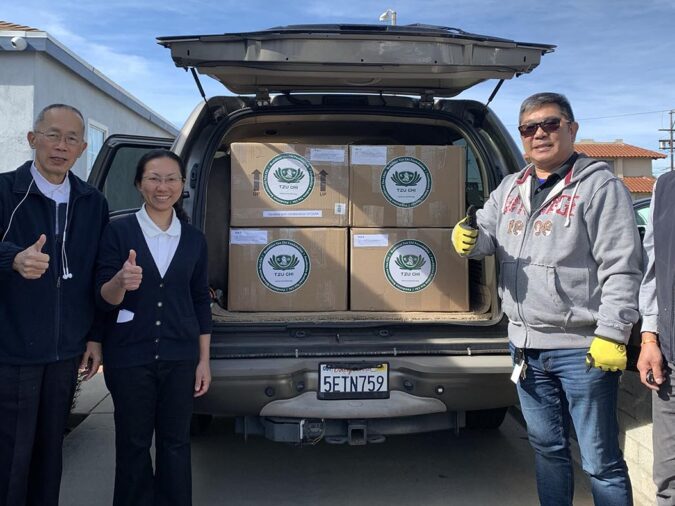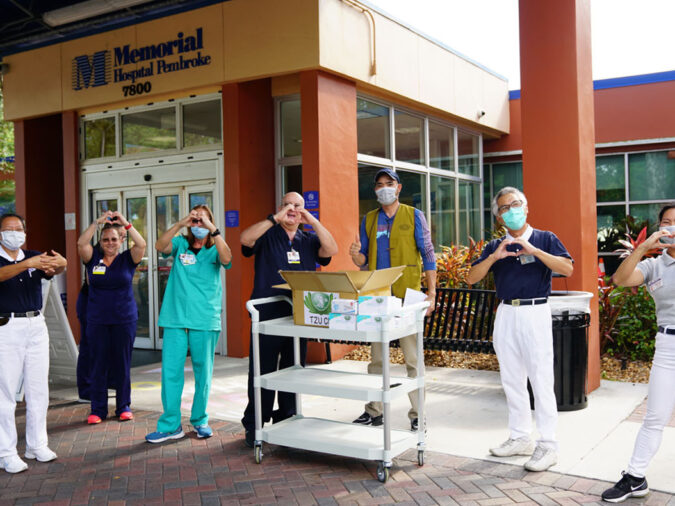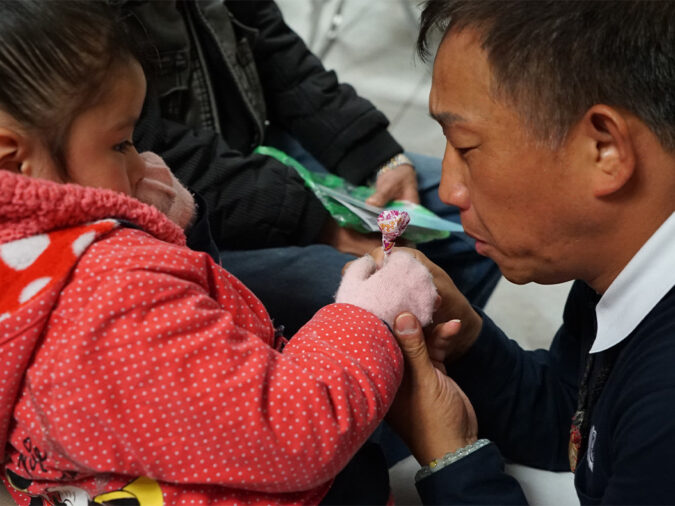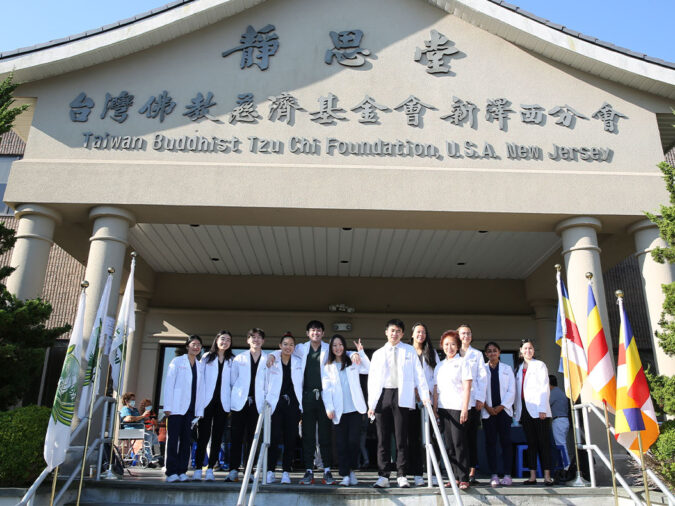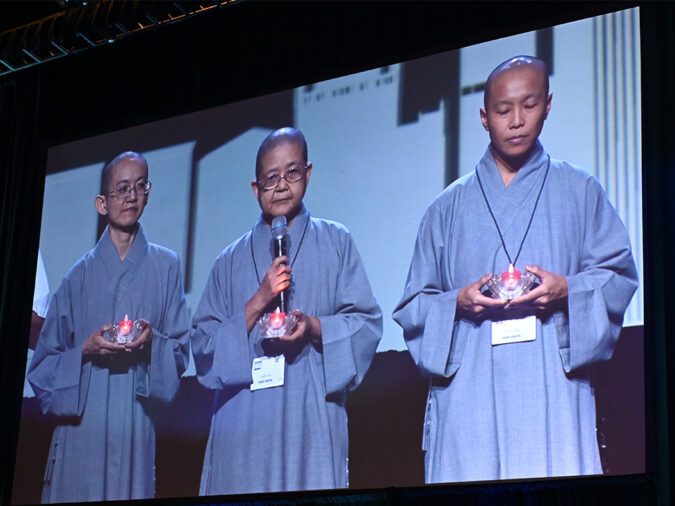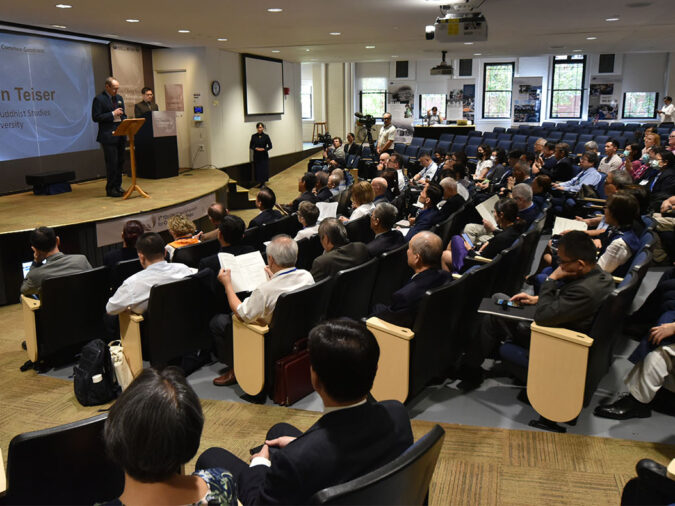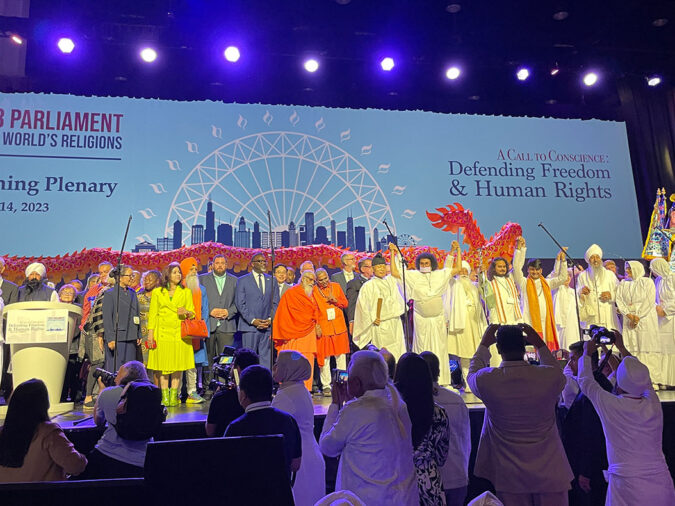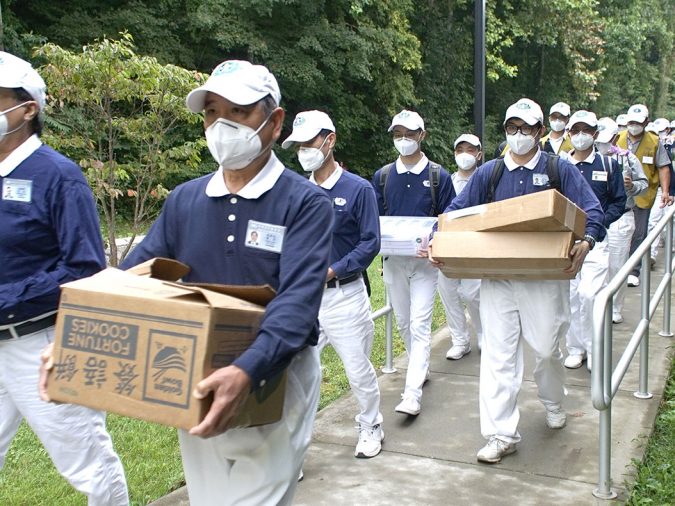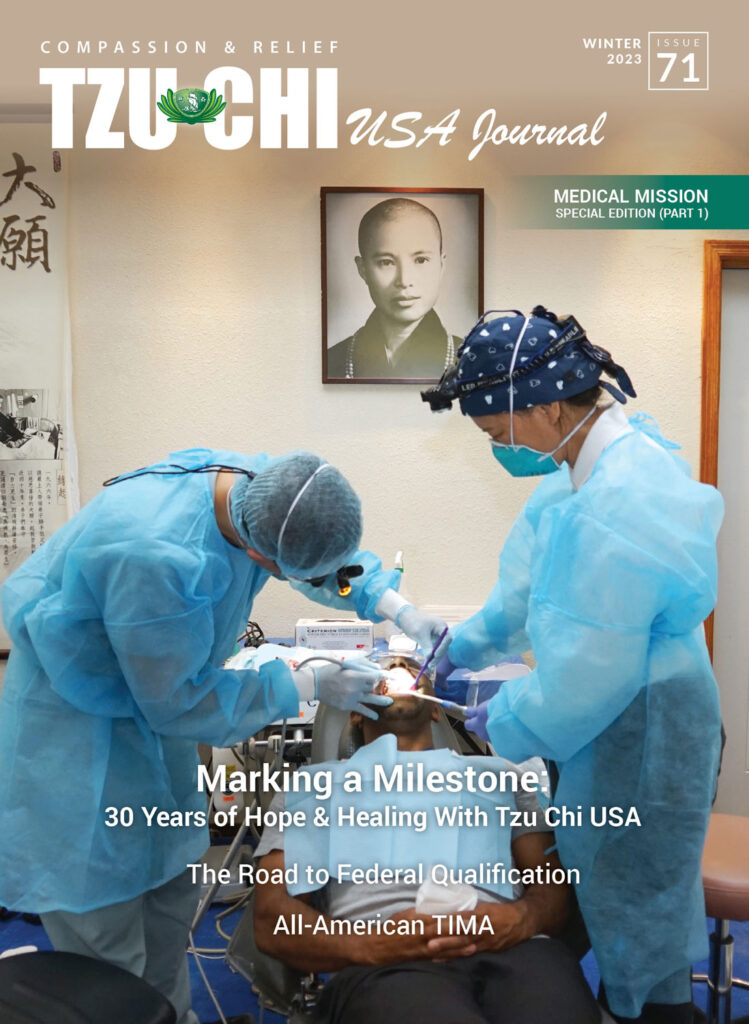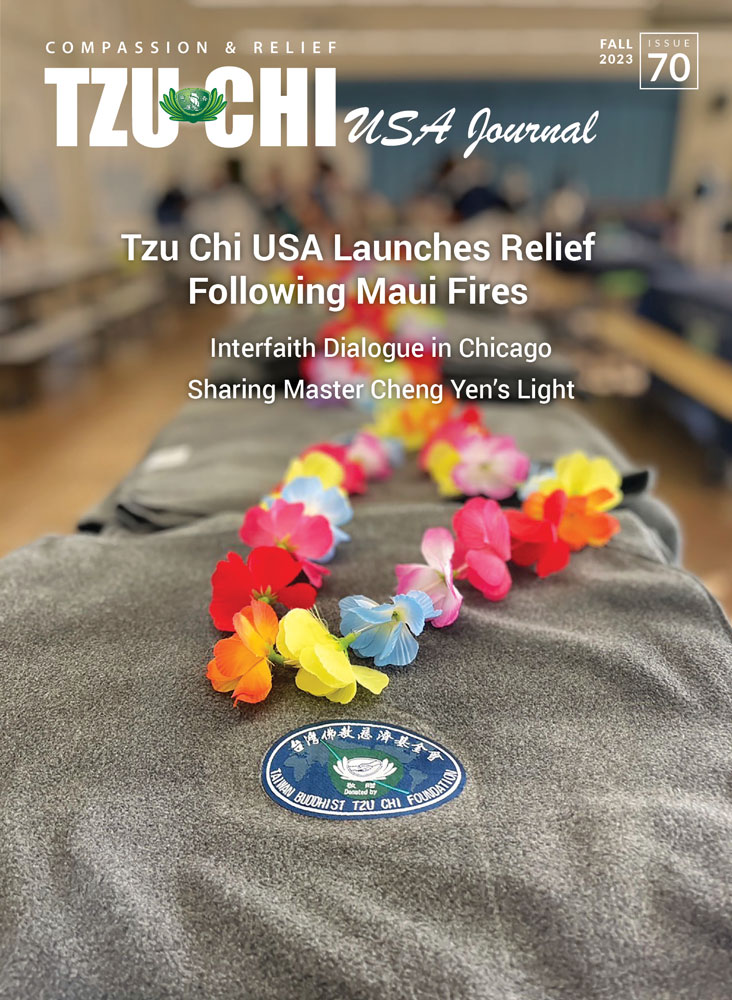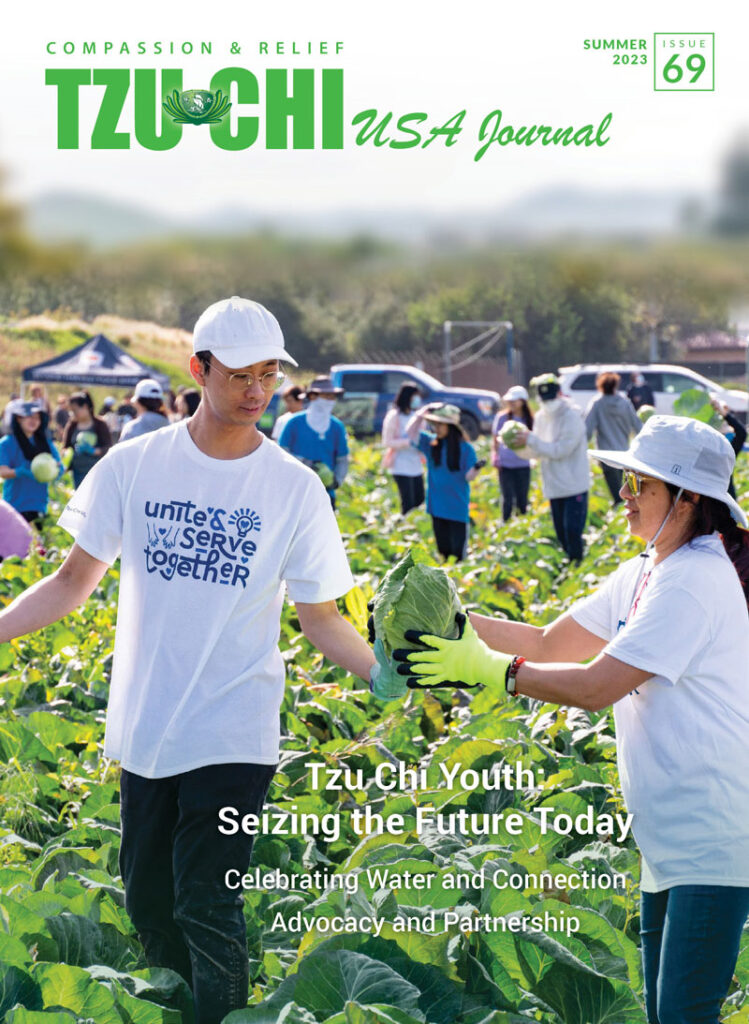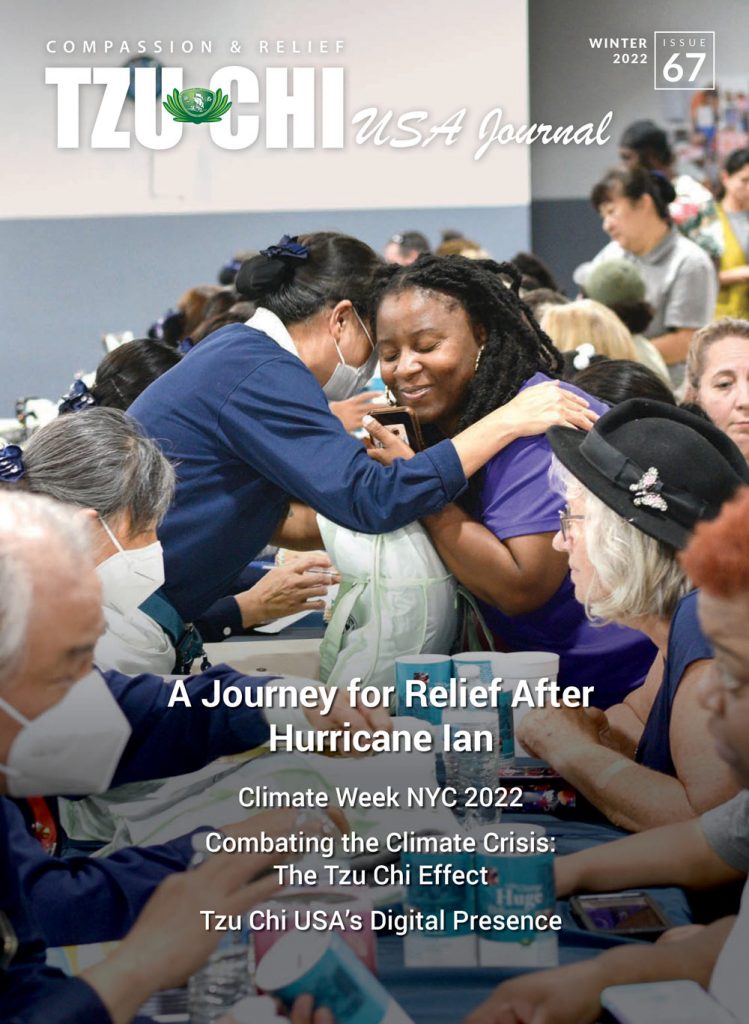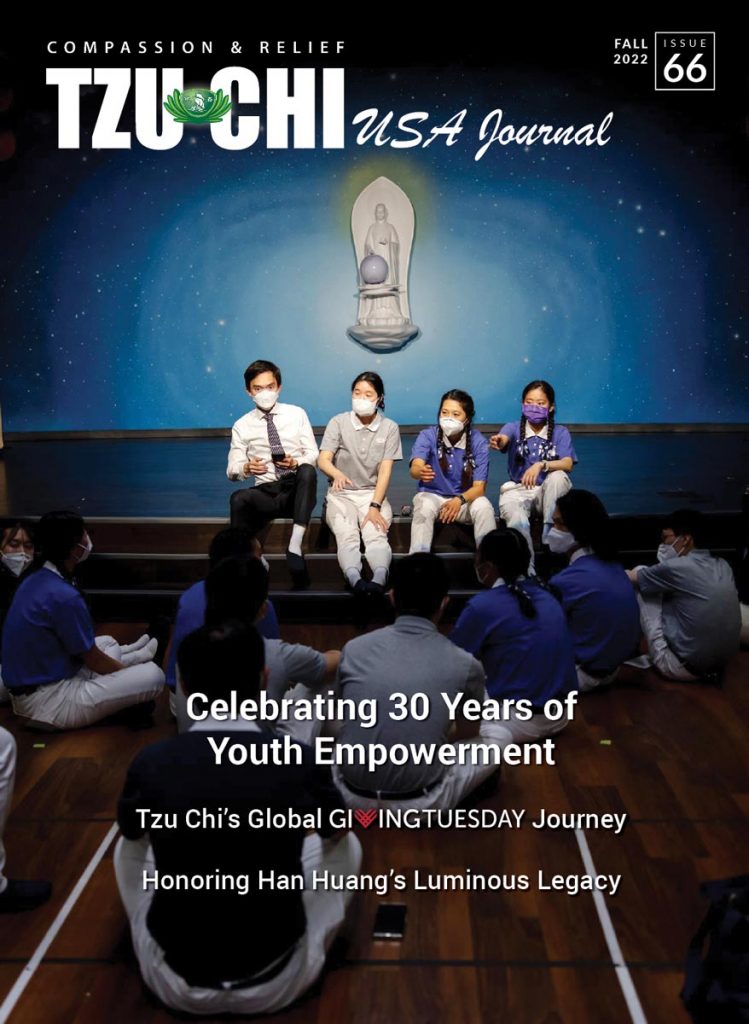A Safe Haven
for Ukrainian Children Sheltered in Poland
A Safe Haven for Ukrainian Children Sheltered in Poland
Written by Ida Eva Zielinska
Published #66 | Fall 2022 Issue
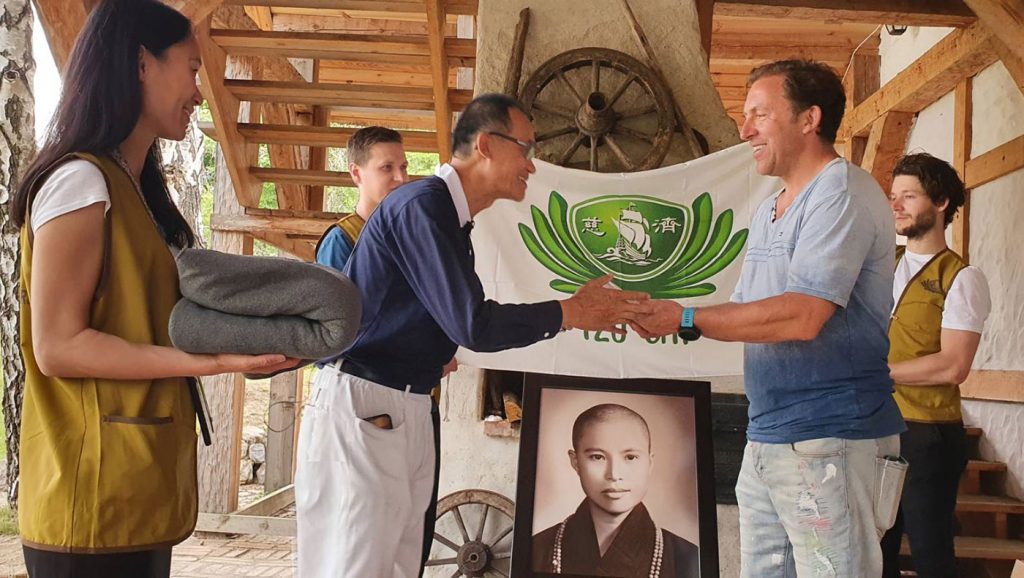
Marek Kolbowicz, co-owner of the Szafir Center in Poland sheltering Ukrainian children who escaped the war in their homeland, officially accepts Tzu Chi’s long-term aid. Photo/DaAi TV Team
SHARE
It was 10 o’clock at night when the phone at the Szafir Conference and Leisure Center in Poland rang and Marek Kolbowicz answered.
“Listen, tomorrow morning, around 100 kids are arriving in two buses,” he heard, and his immediate reaction was, “What?” Although, he knew this moment could come.
Marek Kolbowicz and his business partner, Tomasz Zalewski, co-own the Szafir Center and have been running it for 11 years. “Mostly we’re in charge of organizing camps, green schools; we’re in direct contact with children. You could say it’s a holiday center for children,” Marek describes.
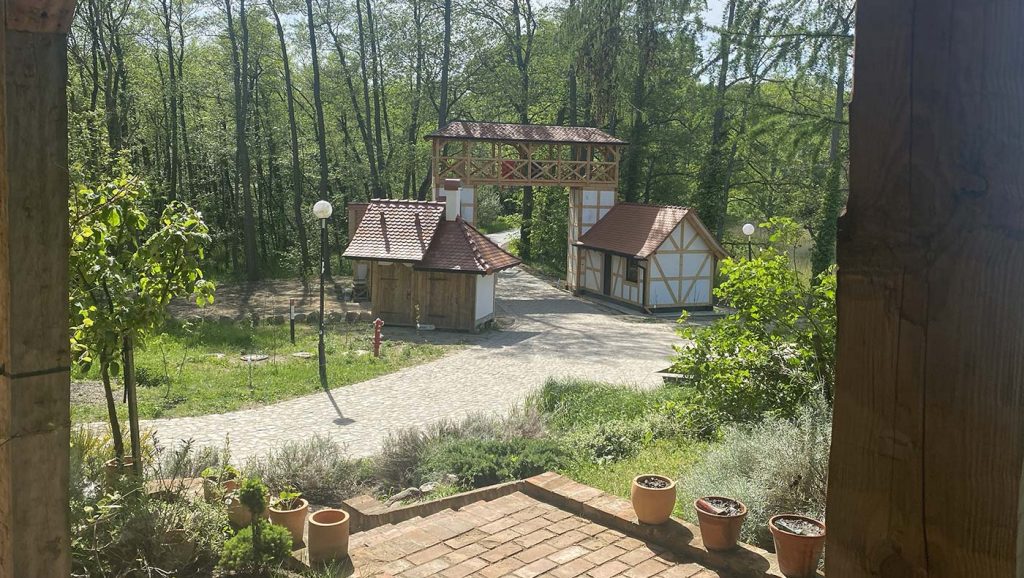
The Szafir Center is in Moryń, a town in Gryfino County in Poland’s West Pomeranian Voivodeship, around 15 miles from the German border. However, these young international guests weren’t on their way from Germany but Ukraine, from Huliaipole in Zaporizhzhia Oblast, approximately 1,240 miles away. Moreover, they weren’t coming for a holiday but escaping the war raging in their homeland since Russia launched its invasion in February 2022.
Huliaipole, at the intersection of important roads bisecting the eastern part of Ukraine, has sustained heavy damage due to bombardment and artillery battles. The population, around 13,000 initially, has dwindled to about 2,000 as people were evacuated or fled. The 106 children who showed up at the Szafir Center on March 9 are from an orphanage for special needs kids. An additional 40 people soon joined them: The children’s caretakers with their families.
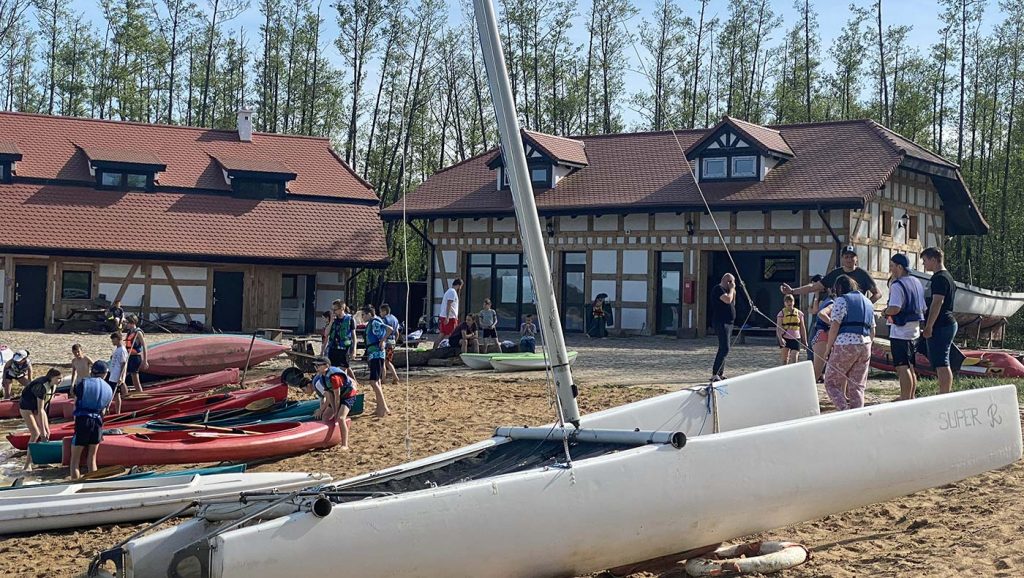
The Ukrainians path here emerged in steps after Gryfino County emergency services first contacted the Center when the Russian invasion of Ukraine began. “They asked, ‘Are you able to accept anyone because there will be a lot of refugees, probably there will be a war, so are you able to accept anyone?’’ Marek shared, continuing, “We said, ‘Okay. We can do that.’ Soon after, a foundation reached out to us, Happy Kids, and said, ‘Will you accept children?’ ‘Okay, we’re ready to accept kids because we have experience.’ ‘Fine, so wait,’” and they did.
The Happy Kids Foundation (Fundacja Pomocy Dzieciom), whose mission is to provide equal opportunities for every child to achieve their life goals, initiated the evacuation of children from orphanages. Once Marek and his business partner said yes, the wheels were in motion. Why did they agree? For Marek, it’s obvious and nothing special as he counts them among all the other Poles helping their displaced Ukrainian neighbors.
Poland took in over two million Ukrainian refugees. So nearly everybody has an acquaintance with someone from Ukraine in their home. I have a somewhat bigger home and took in a bit more people, but all of Poland did this: Because we have to, because that’s how it should be, because we should help those in need. For us, it was as simple and normal as breathing.
Marek Kolbowicz
Co-Owner, Szafir Center
Tzu Chi Learns About the Children
When Tzu Chi volunteers in Europe first heard of this beautiful story and came to visit, the situation was stable, and the Szafir Center was able to fulfill the accommodation requirements. Still, the children’s adjustment to their new living environment in a foreign land had been gradual.
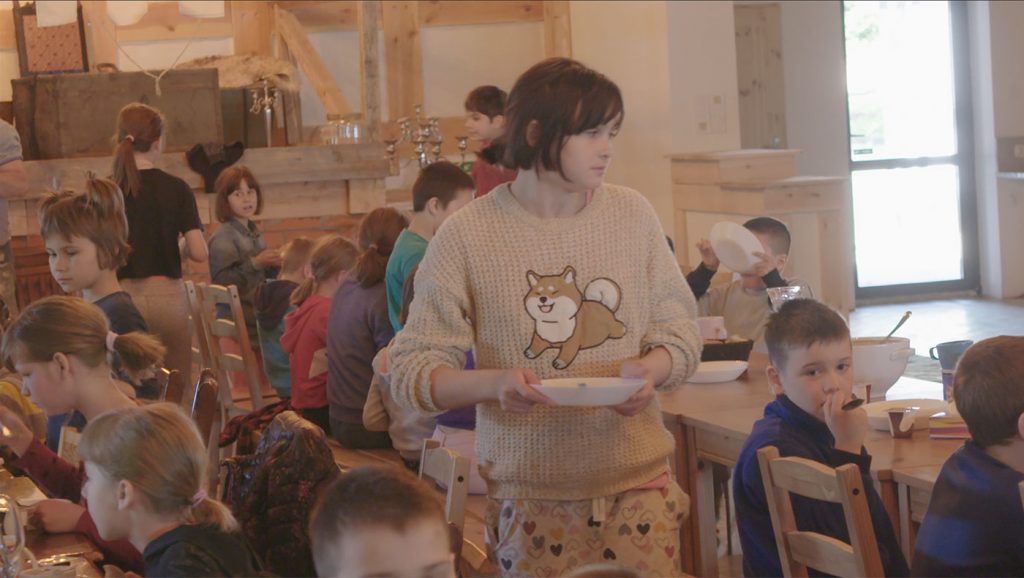
I'll never forget how when the kids arrived, they went to the cafeteria, and there was complete silence. It was terrifying. I thought, 'Jesus, will it be like this all the time?' But actually, the kids were tired, scared, in a completely different reality, and I know that during that first meal at the table, they were learning about the food, that there will be enough, they'll always have it, so those were the first steps. But from day to day, hour to hour, this situation was changing, and the first smiles appeared. They saw that they were safe and taken care of, and they started to function normally, laugh, talk, and be happy about being here together.
Marek Kolbowicz
Co-Owner, Szafir Center
Beyond providing food and shelter, there was more to address. With only a short time to pack, the children followed their instructions: “Bring only as much as fits into a small knapsack,” Marek Kolbowicz explains, “and that’s all they took. We didn’t know that’s how it would be.” Even while the kids were in transit for three days, that became clear: “We got a call, then a second, a third… ‘Listen, we need this… this… we need this.’”
The Szafir Center staff bought underwear, socks, and clothes as many kids had favored their stuffed animals over other essentials to bring. Poles also donated clothing and shoes once they learned about the children coming.
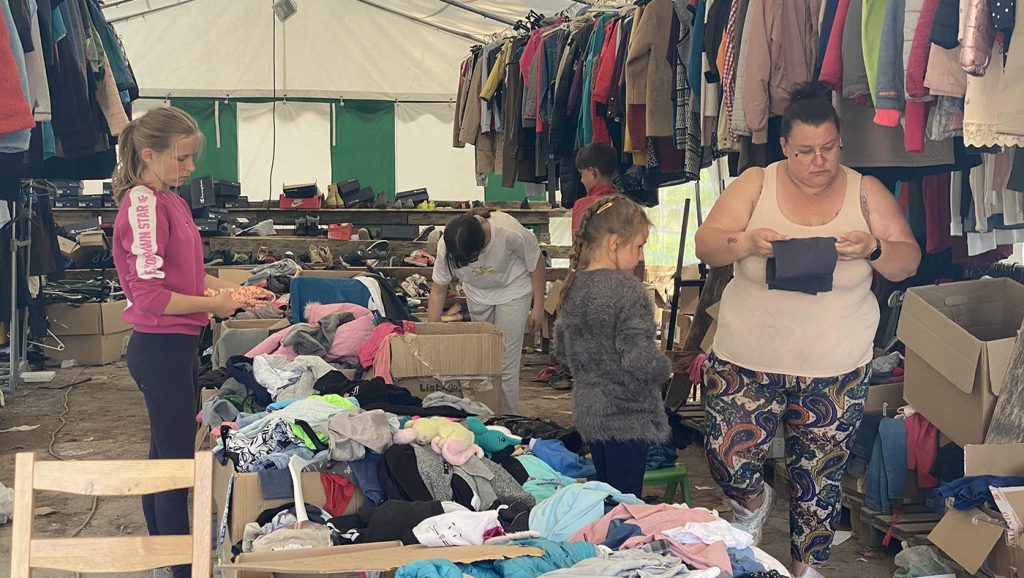
The Center then adapted its summer camp program, considering that 70% of these children have some form of mental disability, with many on the autism spectrum. “We had to change how we approach these kids quite a bit,” Marek said, but apart from that, “nothing changed; we’re in the same rhythm, the kids are the same as Polish kids.”
Things progressed smoothly for a time as institutional and spontaneous donor funding was coming in, with Marek’s celebrity as the 2008 Beijing Olympics Gold Medal winner in rowing also attracting interest to the cause. And yet, the children had already stayed longer than the expected month or two.
Persevering Even as Aid Runs Dry
When the Tzu Chi USA video team traveled to Moryń in mid-May to follow up on the situation, needs were escalating while the aid boom was over. “Nobody calls, nobody comes, nobody helps,” Marek Kolbowicz announced. Perhaps his renown had eventually led people to assume he didn’t need more help.
A lot of them say, ‘Come on, you’re the Olympic champion. You’re on TV, I’m sure that you get a lot of attention, a lot of money.’ Then he doesn’t get any help because everyone thinks he’s famous so he’ll get money from everywhere. But that’s not true.
Lukasz Baranowski
Tzu Chi Volunteer
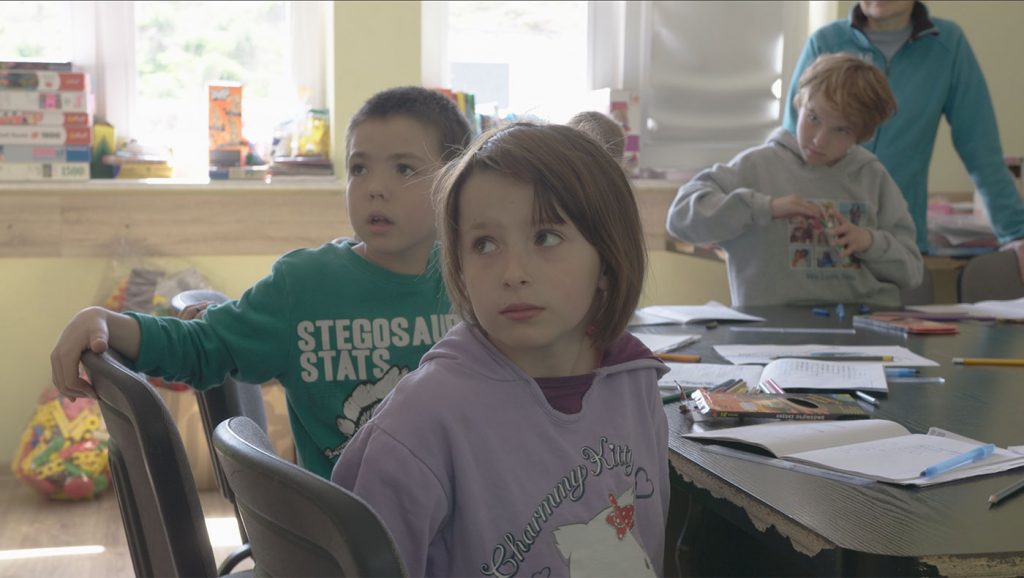
This new reality converged with the imminent arrival of Polish kids at the doorstep for summer camp, soon to take up all the regular accommodation spaces. They couldn’t cancel those reservations because that revenue, “that’s our bread, our upkeep for this Center,” Marek explained. At the same time, the Ukrainian children had to stay.
Thus, housing them suddenly encompassed buying and setting up mobile homes and purchasing beds and bedding for 146 people, all within ten days. “Will we succeed? We have to. Because if we don’t, the kids won’t have anywhere to go,” Marek thought, and they got to it, circumventing financial hurdles as best as they could.
We have to essentially stand on our heads and turn our world upside down because what we want to do is unbelievable but possible. Something inside us is saying that we’ll manage, that they’ll help us, from everywhere they’ll help us because we’re helping, so why shouldn’t others help us? We’ll accomplish it all, and there will be Polish and Ukrainian children here, and we’ll create an international summer camp.
Marek Kolbowicz
Co-Owner, Szafir Center
Meanwhile, the stress of being able to feed the 146 guests was growing. Other costs were also unaccounted for since many of the children take prescription medications and require doctor visits entailing frequent travel to Szczecin, a 100-mile round-trip. Perhaps Marek’s faith that good deeds create blessings kept him going, so he plowed ahead despite all the obstacles.
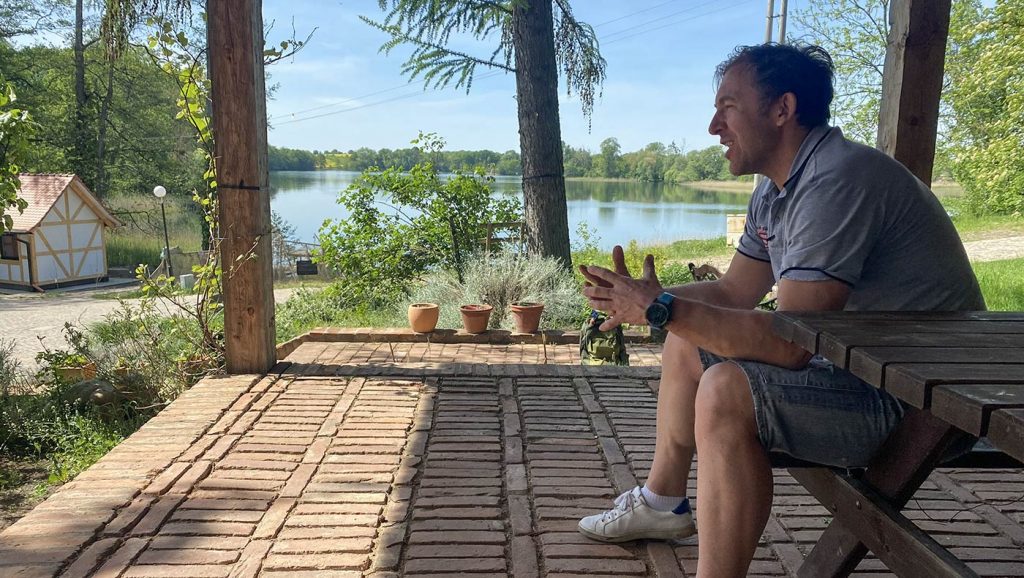
It’s just through ‘good heart’ and nothing else because we can’t make ends meet, but money isn’t everything. I think we’ll manage and persevere to the end, until the end of the war, and I hope they will be with us till the end, here at the Center.
Marek Kolbowicz
Co-Owner, Szafir Center
He pauses before continuing as he imagines the children’s eventual departure, “and then we’ll say goodbye, and buses will come, they’ll get on… we’ll cheer them on when they’re leaving, no?” His words falter as tears fill his eyes, an expression of genuine love.
A Good Deed of Far-Reaching Benefit
Marek Kolbowicz had no idea that the Szafir Center’s good deed of sheltering the Ukrainian children was to see a burst of support at the beginning of June. Realizing the long-term needs, Tzu Chi committed to providing monthly funds per child while they stay at the Center. Marek’s immense gratitude merged with a sense of astonishment.
It’s the first organization that showed up and really wants to help. It’s absolutely… I’m talking to you guys, but I’m just starting to believe it. Wow. I want to scream with joy. It’s in the category of miracles, right? That, ‘good returns tenfold.’ If you do good once, it will return to you ten times, and that’s what you are.
Marek Kolbowicz
Co-Owner, Szafir Center
Tzu Chi’s aid potentially has additional far-reaching benefits. First, the children can enjoy an idyllic setting along the coastline of picturesque and pristine Lake Morzycko, in the buffer zone of protected Cedynia Landscape Park. Just the glory of nature here is a priceless gift.
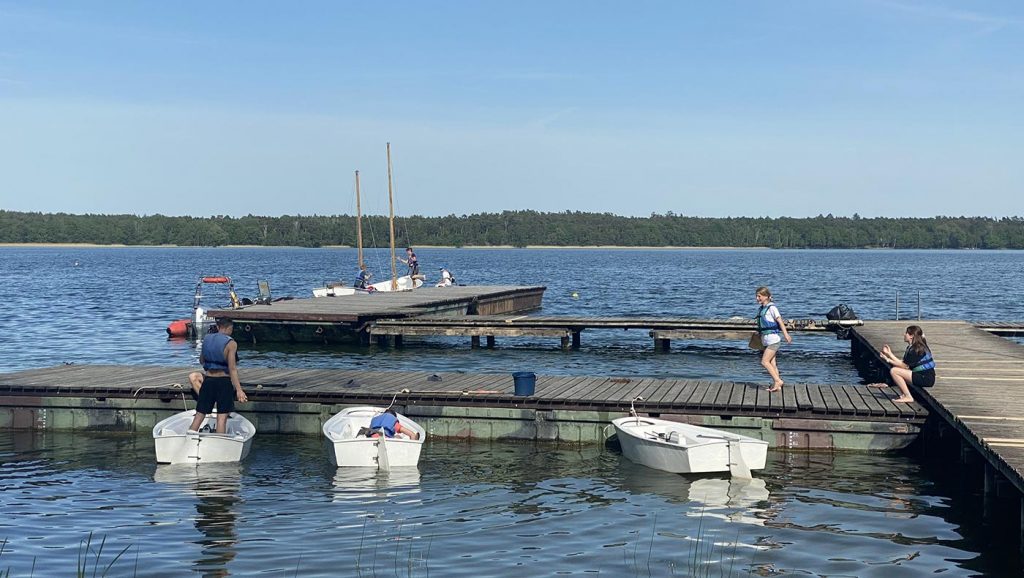
And yet the children are also enjoying new possibilities. “Maybe in Ukraine, they never even ventured outside and saw nothing, and here they have a lot of opportunities because they’re in different spaces, and various volunteers come here who show them what they can do, how,” Marek happily shares.
The novel circumstances and stimulating surroundings have positively changed the children’s demeanor. Marek notes that among the Szafir team, “each of us observes that they’re behaving differently from just after arrival; they’re evolving in their development, getting better. Do they have better care? No, it’s quite similar; it’s just that the range of opportunities is much larger. They can do a lot more. They’re getting to know a lot more.”
I like it here. Everything is okay. You can dance here, you can dance!
Valentina
Ukrainian Child
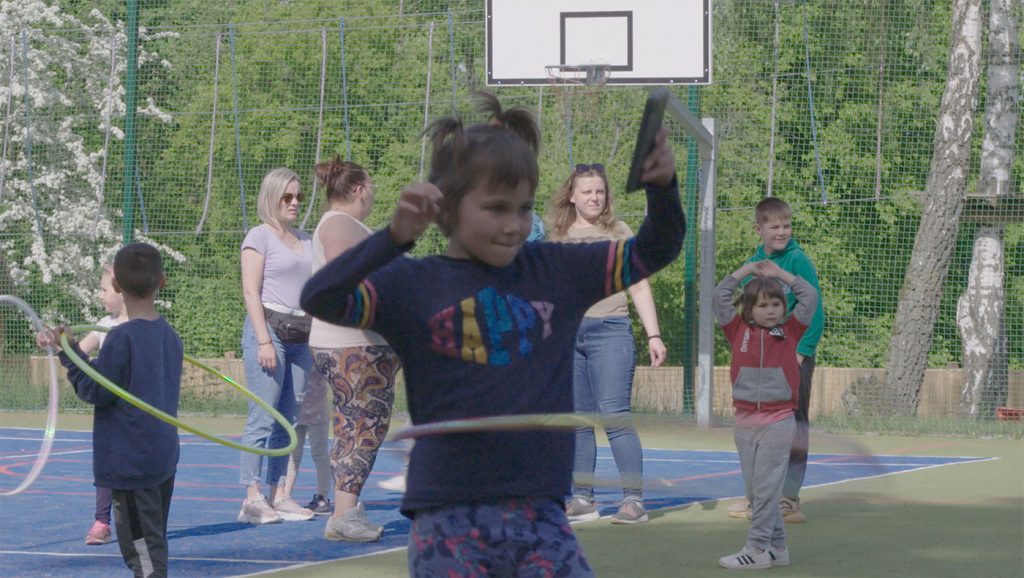
Additional factors also make their prolonged stay beneficial. UNICEF reports, “Before the war, Ukraine had the highest number of children in institutional care in Europe: More than 90,000 children.” Furthermore, “the majority of children living in orphanages in Ukraine are not orphans. Most have parents and families who have placed them in orphanages for economic reasons or for assistance with a child’s special needs,” the U.S. Department of State’s Special Advisor for Children’s Issues wrote in a March 2022 statement.
They call me mommy. I say, ‘I’m not your mother; I’m just a guardian.’ I hope God sees what I do.
Ina
Ukrainian Caretaker
The reasons the parents of so-called “social orphans” gave up or lost their parental rights may also stem from illness, alcoholism, or other social problems.
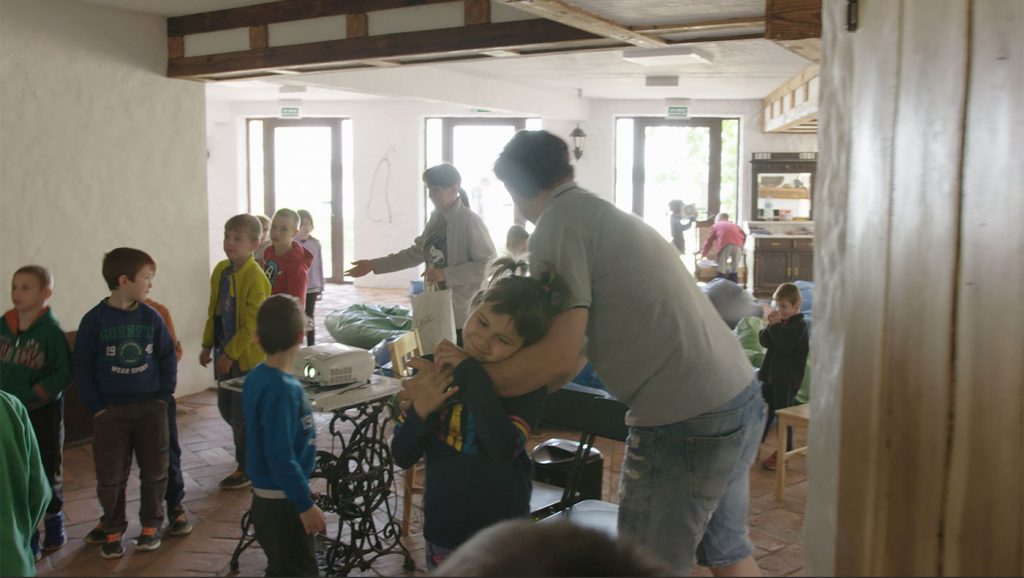
According to UNICEF, nearly half of children in Ukraine’s state residential care – orphanages, boarding schools, and other facilities – have disabilities, physical, mental, or both. At the same time, many institutions are underfunded. Children can carry outdated diagnoses and lack access to the latest therapy for their condition, impacting their future quality of life and possibilities as adults.
Given this complex context and the varied health issues facing these special needs children, Marek and the team plan to activate channels to re-diagnose them, particularly using Poland’s most advanced technology. They found a medical facility where these assessments could proceed, potentially offering new tests and treatment directions.
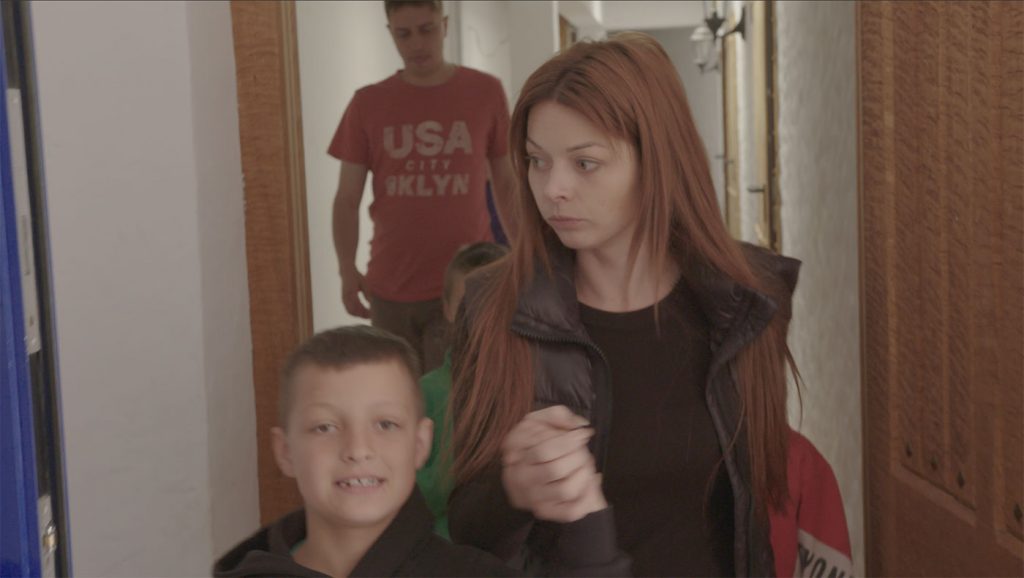
100% of these children will get re-diagnosed by our Polish specialists. There may be different eventual treatments and rehabilitation in terms of motor skills. It may turn out that when they leave here, the doctor will say, ‘He is healthy, has no issues.’ I’m convinced we’ll pull out not just one child but many, and we’ll see them cured here. We’ll go to heaven while alive if we succeed in this.
Marek Kolbowicz
Co-Owner, Szafir Center
Such marvelous eventualities are what everyone involved in this Tzu Chi long-term care case hopes will manifest. Still, there are transformations unfolding already. One older child, whose initial behavior had been somewhat troublesome, was interviewed a few weeks after arrival, and when the reporter asked, “What has staying here given you?” Marek fondly remembers how the boy replied, “I became a better person, and I learned here, as it is in this place, to help others.”
Marek’s heartfelt vision for the children is, “They’ll acquire faith in others; I suspect they had it, but now they’ll have even greater faith, opening the possibility to discover greater horizons.”
These are the ripples of compassion in action, which Tzu Chi volunteers experience first-hand worldwide. Here in Poland, volunteer Lukasz Baranowski, who is involved in this mission along with his wife, Monica Chang, knows why he’ll continue on this path:
I just feel that I need to do it. I think that if my kids see that their parents help a lot, they’ll become better people in the future. That’s one of the reasons. Another reason is that I always wanted to make this world a little better.
Lukasz Baranowski
Tzu Chi Volunteer
And indeed, the world is a better place for the 106 Ukrainian children who found safety and shelter in Moryn, Poland, after escaping the ravages of war back home.
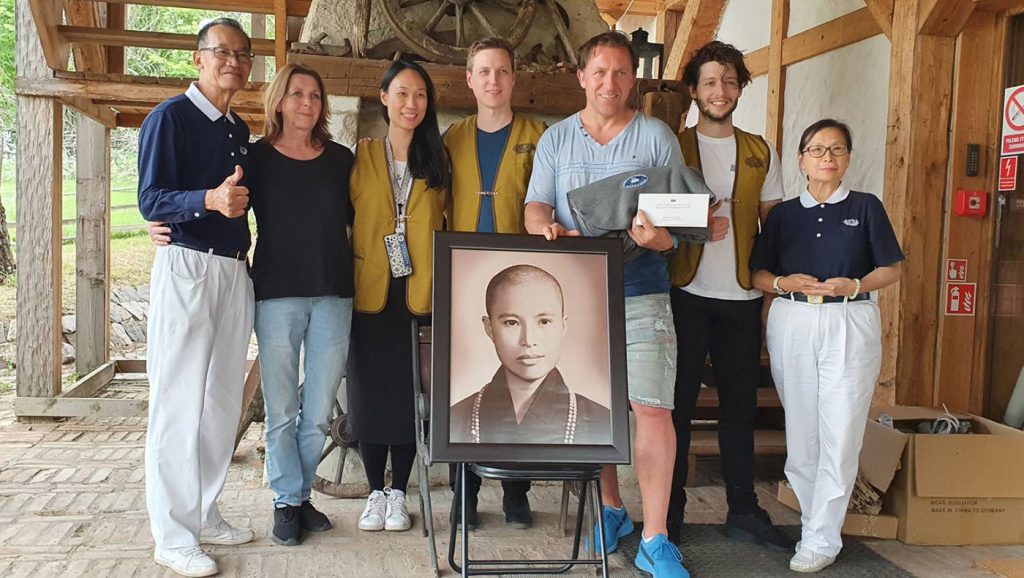
SHARE:

